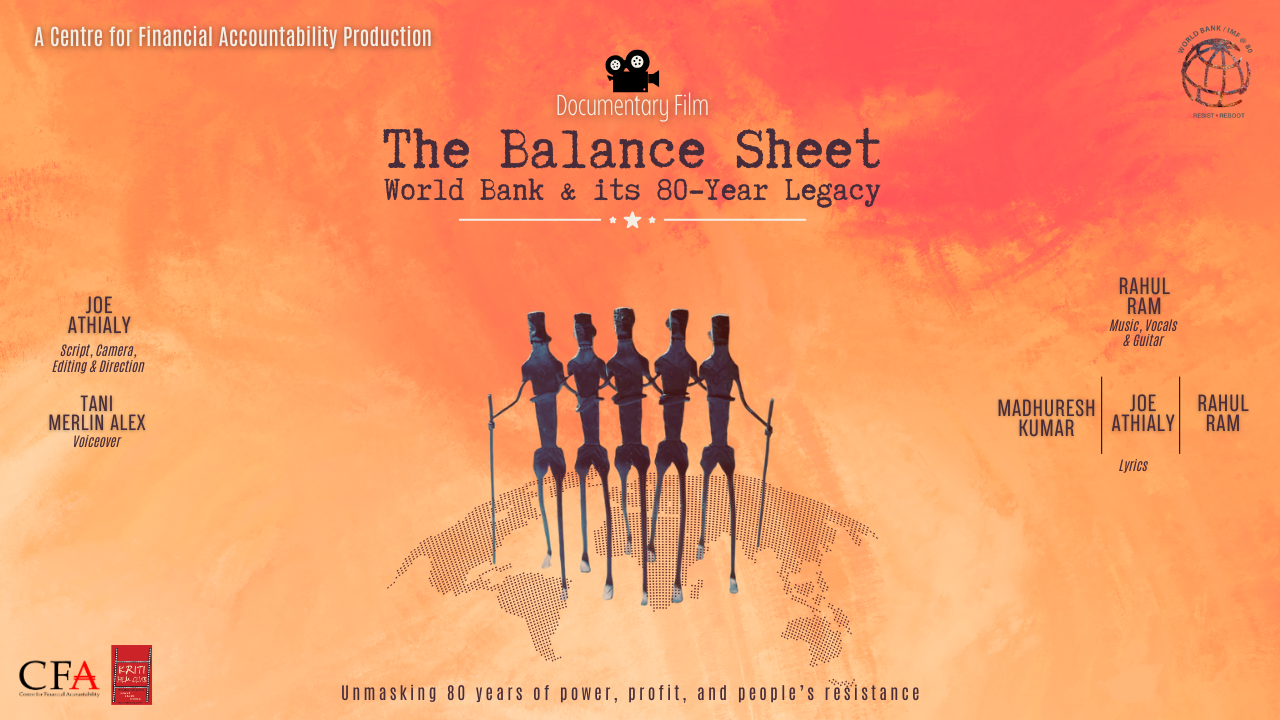‘Totally meant for business houses’: Senior advocate Gayatri Singh on new Labour Codes
https://indianexpress.com/article/legal-news/gayatri-singh-interview-new-labour-codes-10389268/
 https://www.cenfa.org/the-balance-sheet-world-bank-its-80-year-legacy-documentary-trailer/
https://www.cenfa.org/the-balance-sheet-world-bank-its-80-year-legacy-documentary-trailer/
https://www.youtube.com/watch?v=EXld_51qzho For 80 years, the World Bank and IMF have fueled displacement, inequality, fossil dependence, and authoritarian regimes—while claiming to fight poverty. The Balance Sheet exposes their legacy and sinister designs, and celebrates global resistance by adivasis, women, and marginalised communities who dared to challenge their exploitative development model.
🎬 Script, Camera, Editing & Direction
Joe Athialy
https://www.indiatoday.in/technology/news/story/india-orders-phone-companies-to-install-govt-cyber-safety-app-in-every-phone-users-will-not-be-able-to-delete-it-2828694-2025-12-01
The November 28 order gives major smartphone companies 90 days to ensure that the government's Sanchar Saathi app is pre-installed on new mobile phones, with a provision that users cannot disable it. For devices already in the supply chain, manufacturers should push the app to phones via software updates, the ministry said in its order, which was not made public and was sent privately to select companies.
The government said the app was essential to combat "serious endangerment" of telecom cyber security from duplicate or spoofed IMEI numbers, which enable scams and network misuse.
post by — 𝑷𝒓𝒊𝒕𝒉𝒗𝒊 𝑹𝒂𝒋 𝒃𝒖𝒅𝒂𝒏𝒊𝒂 Through this app, the government is now going to spy directly on your phone... And all this is being done in the name of cyber security...
This means that the government will no longer have the hassle of purchasing data from other apps or even refusing to do so to gather information about you. So get ready, friends, the government is about to come and sit in your phone.
